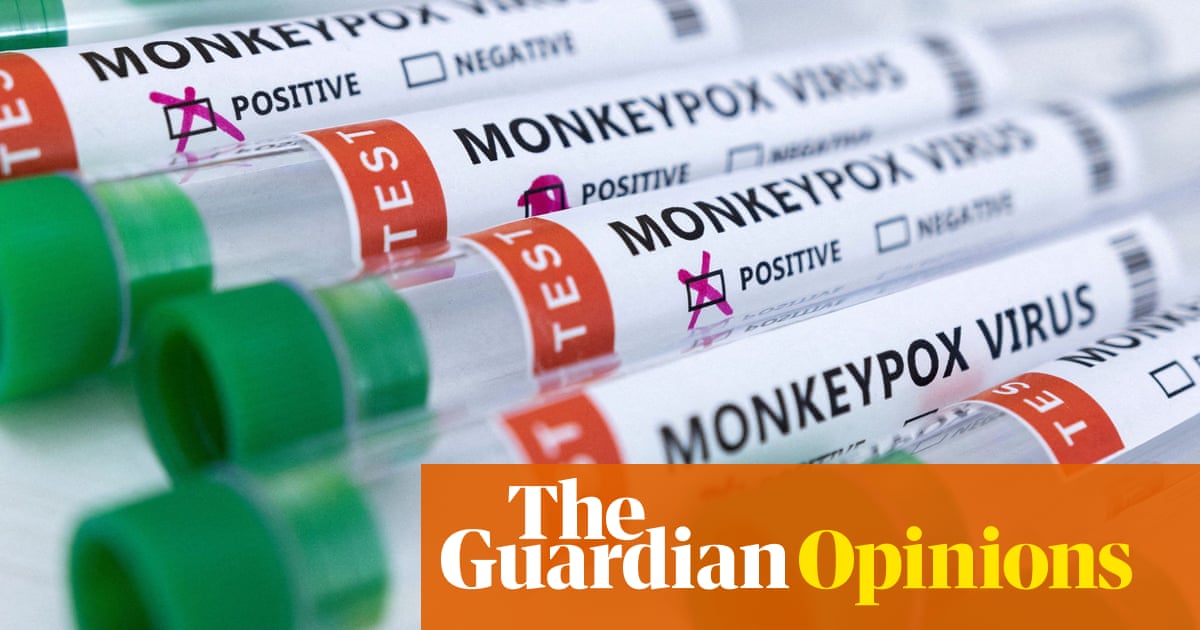The Guardian view on monkeypox: communication is crucial
Show caption ‘If monkeypox continues to spread, it will put yet more pressure on hard-pressed health services.’ Photograph: Dado Ruvić/Reuters Opinion The Guardian view on monkeypox: communication is crucial Editorial Language has a vital part to play in virus control. The World Health Organization should monitor it, as well as case numbers Sun 5 Jun 2022 18.25 BST Share on Facebook
Share on Twitter
Share via Email
Another month, another virus. No sooner does some of the world appear to have made an uneasy peace with Covid than along comes monkeypox, an unpleasant but, for most people, not fatal blistering disease caused by a virus that is common in parts of west and central Africa, but has only recently made its way in significant numbers to regions where it is not endemic. It has been recorded in at least 20 countries in the past month, from the Americas to Europe and Australia, with cases recently confirmed in Wales and Scotland, as well as England.
If it continues to spread, it will put yet more pressure on hard-pressed health services. Efficient management in the community is vital, with people unafraid to come forward if they believe they are infected. Language has an important role to play, with the UN’s Aids agency warning last month that racist and homophobic rhetoric risks stigmatising the disease and undermining the response.
Monkeypox is a zoonotic disease, ie one that spreads from animals to humans, with a name that originates from its first discovery in monkeys in a Danish laboratory in 1958. It is, in fact, more likely to have come from rodents, from eating undercooked and infected meat, and from handling infected fur or animal skins. Its transmission between humans is predominantly via close contact, which is why it spreads through sex. However, it is not a sexually transmitted disease, but a virus that can also be spread by coughing, sharing linen, or touching infected skin. Its exotic-sounding name is neither accurate nor helpful.
The screenwriter Russell T Davies last year wrote movingly of Aids, which inspired his award-winning TV series It’s a Sin, recalling the damage done by early newspaper headlines sensationalising it as “a gay plague”. And the stigma continues, he wrote, even though the success of antiretroviral medication means that a deadly disease is on course to becoming a manageable condition.
Successive variants of the Covid pandemic were first defined by their place of origin: Wuhan, UK/Kent, South Africa, Brazil and India, prompting fierce discussions as to how they should be renamed to avoid stoking prejudice without resorting to complicated scientific classifications. Finally, in the summer of 2021, the World Health Organization found an elegant solution, using letters of the Greek alphabet: Alpha, Beta, Gamma and Delta, which said everything that needed to be known in terms of the order of their emergence.
The abbreviations used by scientists for the monkeypox virus are MPV or MPXV. There are precedents for the wider use of such abbreviations; for example, HPV was adopted for the NHS’s immunisation campaign against human papillomavirus, which causes cervical and some other cancers. If monkeypox continues to spread, and make headlines, it would be worth the WHO’s while to reflect on what it is called.











